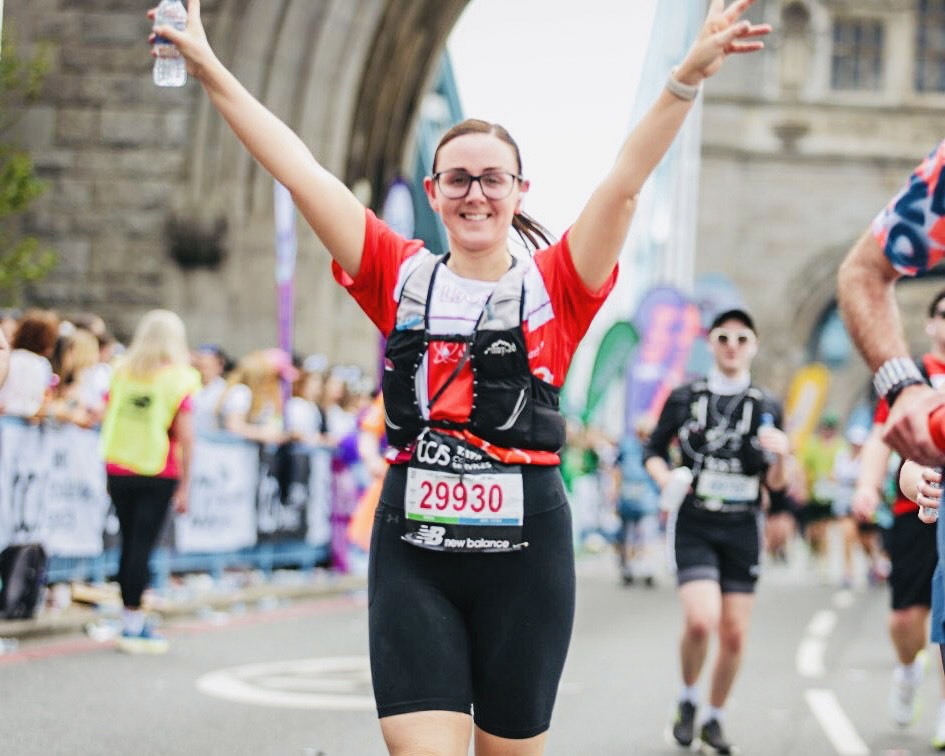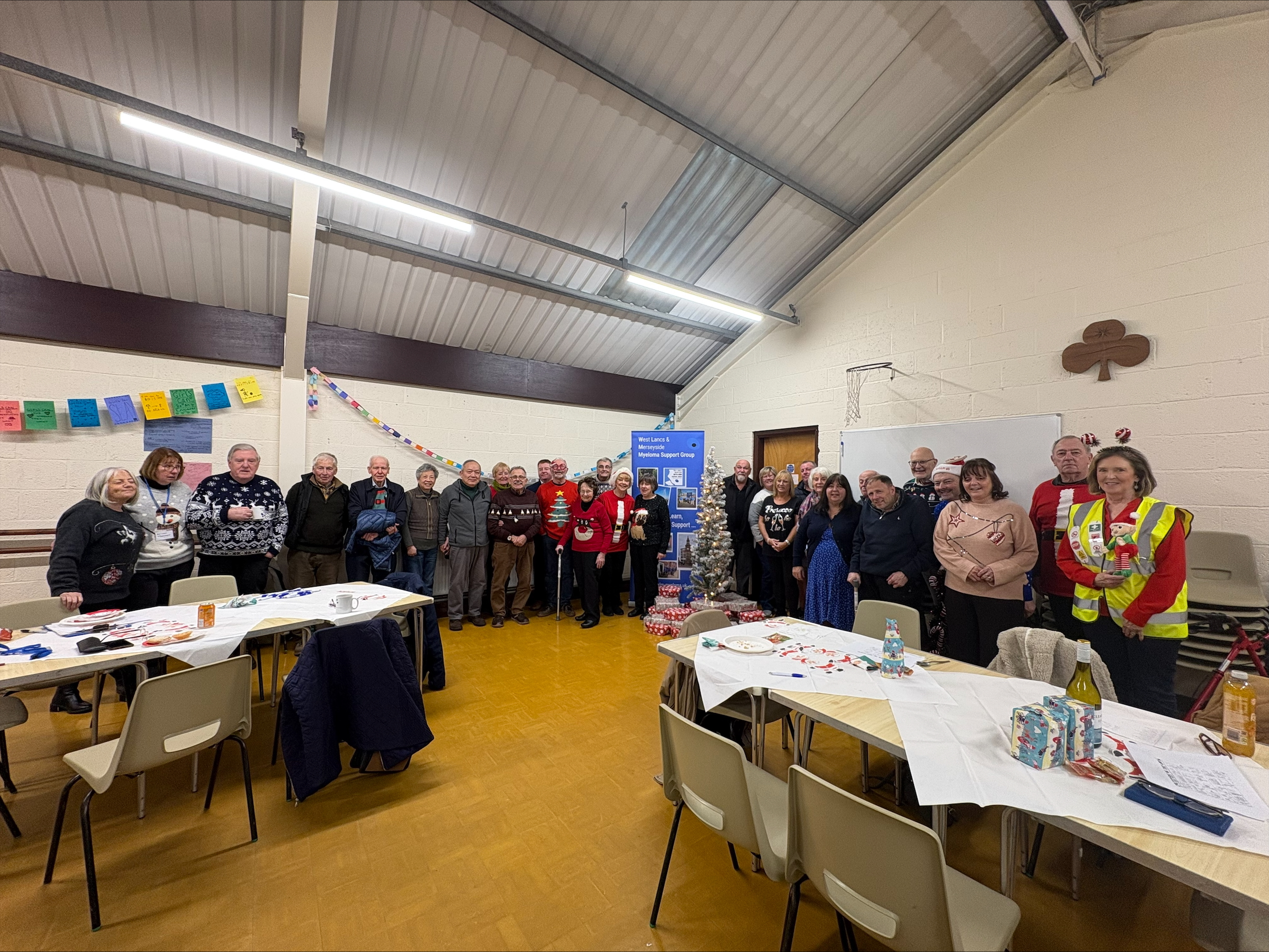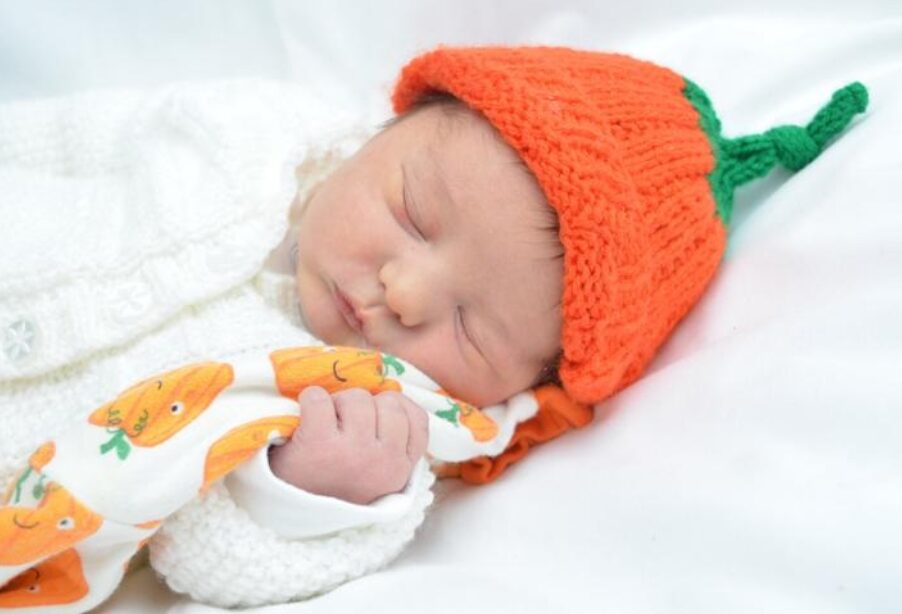
Three new mothers have described the importance of storing their babies’ umbilical cord blood stem cells for potential use to treat life-threatening diseases in the future.
Our charity established the Model Cell Biobank to store stem cells and on World Cord Blood Day (November 15) new mothers who have recently had stem cells taken and stored talked about their experiences.
Banking stem cells from a baby’s umbilical cord is effective biological health insurance, providing options for treatment if the child or another member of the family should need the stem cells in the future because of a serious illness, including blood cancer.
Natalie Harrop and partner Gary Hardwick-Bishop from Newport, South Wales, decided to bank their baby’s stem cells when a friend from work died from Leukaemia and another was diagnosed with the blood cancer.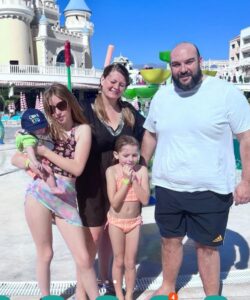
When baby Arthur was born, in October 2023, at The Grange University Hospital, Cwmbran, the plans were in place for a nurse to attend the maternity unit and carry out the simple procedure.
Natalie said: “We didn’t really know anything about the procedure but having a friend at work die from Leukaemia and another diagnosed while I was pregnant made me more aware and I found out about what was involved.”
She said the process was straightforward with Gary contacting the specialist nurse when Natalie went into labour. “It was really straightforward,” she said. “I really don’t know why we aren’t storing babies’ stem cells as a matter of course – it seems such a simple yet important thing to do.”
Natalie, who has three other children, aged from eight to 18, said she didn’t believe the process was available when they were born, but she would definitely recommend it to others.
Luna Sage, who stored the stem cells from baby son Dream’s umbilical cord at birth in the spring of 2024 said experience of cancer in the family prompted the move. Their mother had Non-Hodgkin’s Lymphoma, and a stem cell donor had to be found so she could be treated.
Luna, from Hackney, said: “When my mother fell ill we checked but no one in the family was a match so we had to find a donor to help treat her Non-Hodgkin’s Lymphoma.
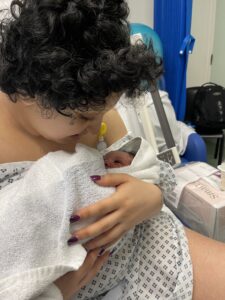 “I would really recommend storing stem cells from umbilical cord blood to others. Even if you don’t have any family history of blood cancer it gives you a ‘plan b’ should someone fall ill – and you never know what might happen in the future.”
“I would really recommend storing stem cells from umbilical cord blood to others. Even if you don’t have any family history of blood cancer it gives you a ‘plan b’ should someone fall ill – and you never know what might happen in the future.”
Dream is Luna’s first baby who will be told his stem cells have been stored as soon as he is old enough to understand.
Rozgar, who lives in South East London, did not know about storing stem cells when her first two children, now aged 17 and 12 were born. But son Heizan, born in May 2024, has had his cord blood stem cells stored.
Rozgar said: “It is like having a second plan in place if something should go wrong later – extra protection against ill-health.” She found out about the service from a poster in the local maternity unit during her pregnancy and she described the process, just after Heizan was born, as “very straightforward”.
Medical research is revealing new potential uses for stem cells to treat disease. One day it may be possible to use them in emerging therapies to treat diseases such as diabetes, cerebral palsy and Parkinson’s Disease. Clinical trials are being performed all over the world looking at the potential use of stem cells to treat new diseases and hopefully further breakthroughs.
For more information about the Model Cell Biobank service, click here: https://lmruk.org/model-cell-biobank-service/.

